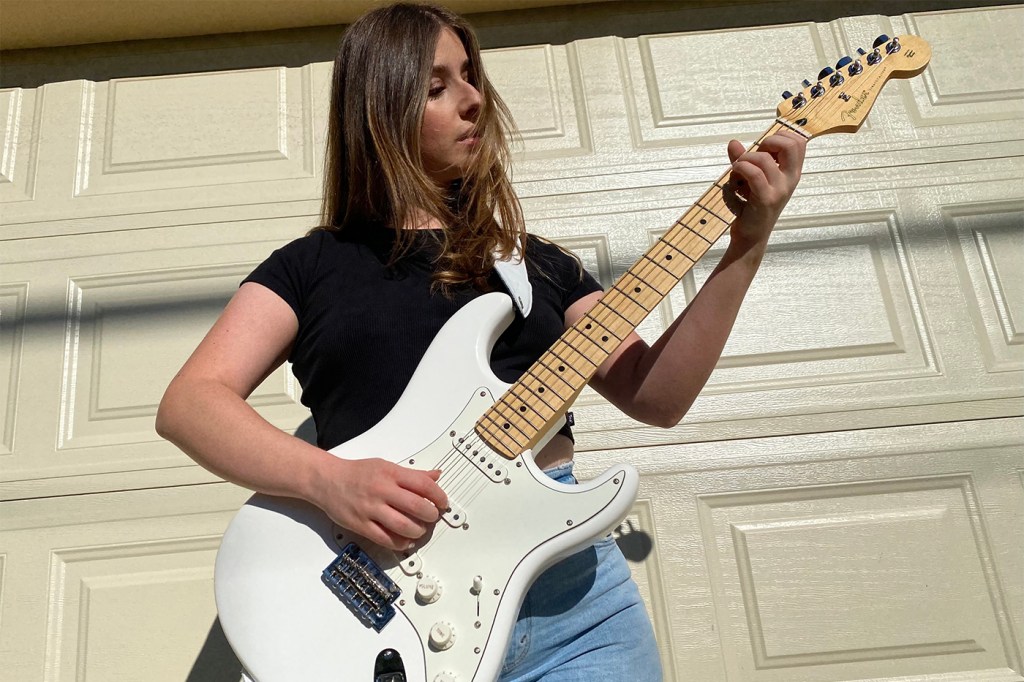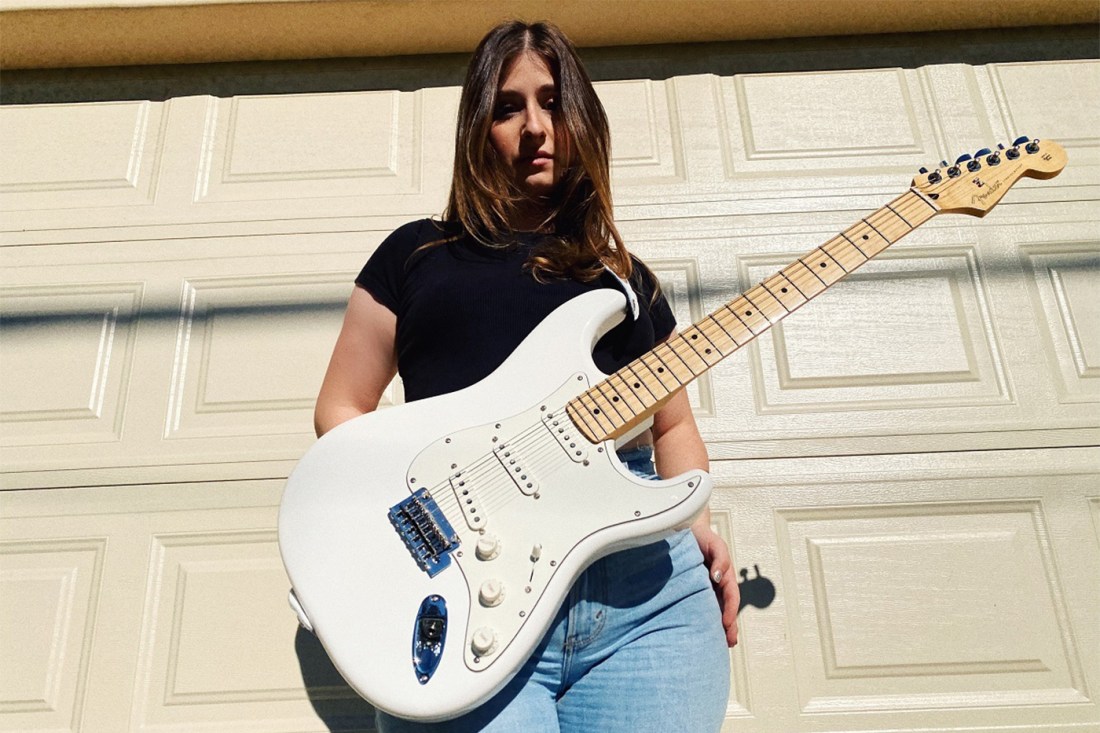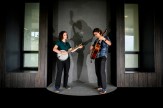It’s impossible to escape Chappell Roan’s ‘Red Wine Supernova.’ You can blame Annie Schindel for that
Annie Schindel spent years thinking “Red Wine Supernova,” the song she helped write during a session back in 2019, would never see the light of day. Then, years later, it came out and became a bona fide hit.

Annie Schindel is, like seemingly everyone else, a huge Chappell Roan fan, so when she got tickets to see the Midwest Princess perform at Outside Lands Music Festival this year, she was over the moon. The only thing that would make it even better: if Roan played “Red Wine Supernova.”
Surrounded by fans holding fake wine glasses, wearing T-shirts splashed with lyrics from the hit song, Schindel wasn’t alone. Standing in line for the bathroom, Schindel even overheard a woman say, “I haven’t looked up the setlist, but if she doesn’t play ‘Red Wine Supernova,’ we ride at dawn.”
So, when the rhythmic strumming that opens “Red Wine Supernova” finally hit Golden Gate Park, Schindel and the rest of the 50,000 people in the crowd erupted in cheers. It was a special moment for Roan’s fans. For Schindel, it was mind-blowing to see thousands of people sing along to a song she had helped write.
“Just seeing the reach that it’s had with fans, especially because I’m such a huge music fan and I care so deeply about music, has just been –– I don’t have the words for it other than that it’s been magical,” Schindel says.
For Schindel, a 25-year-old songwriter who has been working in the music industry since she was a teenager, before she studied music industry at Northeastern University, the success she’s experienced with Roan’s song has been a long time coming. She’s written countless songs, even other hits, but the challenges of working as a songwriter behind the scenes are just as numerous.
Every songwriter’s dream
Now, after years of thinking “Red Wine Supernova” would never see the light of day, Schindel is experiencing every single one of her dreams as a songwriter. The song came in at No. 18 on Rolling Stone’s Best Songs of 2023 list. Elton John named it as one of his favorite songs the same year. Roan performed it on “The Late Show With Stephen Colbert” and during her now legendary Tiny Desk Concert.
“Especially being in this industry since I was 18, it was a bunch of successful writers being like, ‘All it takes is one song, Annie, and everything is going to change.’ I remember rolling my eyes and being like, ‘Really? Does it?’” Schindel says. “Now I’m seeing in real time that literally one song can change everything.”
Growing up in Los Angeles, Schindel has always been a natural entertainer. She began writing songs in her bedroom at an early age, but when she learned that people make careers out of writing songs for other artists, she became obsessed with the idea.
She found a manager and was soon in songwriting sessions at 17 years old. She quickly realized that the industry was more complicated –– and cutthroat –– than she had imagined. She ended up moving to Boston to study communications and music industry at Northeastern before returning to L.A.
Unlike the artists whose names grace the cover of Rolling Stone, songwriters like Schindel operate in relative obscurity even though they are probably responsible for some of your favorite songs. Publishers and managers connect their writers with an artist or label and set up songwriting sessions where writers will work with the artist or other writers to create a song.
But the hardest part is getting into the room in the first place. Schindel spent years trying to get the hundreds of songs she had written off of her hard drive and into the hands of artists. Eventually, her song “Rainbow” was picked up by the K-pop band NCT Dream and ended up becoming the closing track on their 2021 album, “Hot Sauce.”
“Having my name on a legit song at a legit label with an artist that people really care about was the first time that I was like, ‘Not only do I want to keep doing this, but this is actually sustainable,’” Schindel says.

The complicated life of a songwriter
Even after what most people would think was a hit song, Schindel’s life didn’t change all that much. As an independent writer not signed to a publisher, she still struggled to get her foot in the door.
Meanwhile, financially, the life of a songwriter is often bleak. Writers only make money on songs that are released, which is never a guarantee. Independent writers make the most money from radio play or licensed song placements in movies or TV shows. Streams, digital or physical album sales, Billboard charts –– writers rarely get a piece of that.
“Unless you have a song that is massive, it’s $20, $10 here, $16 there,” Schindel says. “The checks that are coming in are tiny, not livable.”
“I know that when I do my sessions Monday through Friday, I’m not taking home millions of dollars, but you do it because there’s that chance that one day one of those songs is really going to land and connect and explode,” she adds.
For writers who sign with publishers, it’s a different story. There’s a reason Schindel signed with Livelihood Music Company in 2022 after years of being independent. She gets an advance from her publisher, which she has to recoup, but, more importantly, she gets access to a network of connections and a team that is dedicated to placing her songs with artists.
“Now you have [peoples] whose only job is to take your song and place it with an artist, so now every single song I’m writing is being funneled out to indie pop, alt pop, rock, K pop [artists],” Schindel says. “It’s been really cool to see a lot of the songs that were sitting on a hard drive get placed with an artist.”
Healing through music
At the same time that she was getting her songwriting career off the ground, Schindel was working through debilitating chronic pain stemming from Ehlers-Danlos Syndrome, a rare genetic disorder that impacts connective tissue.
The experience was paralyzing for Schindel. Suddenly, stuck in a hospital bed, everything she had achieved seemed “miles and miles and miles away,” she says. But spending all that time in the hospital, Schindel had a lot of time to think –– and listen to music.
“I was like, if I’m healthy now and I’m getting back on my feet, I want to write,” Schindel says. “I want to make music that I care about and that people care about because that’s what was helping me.”
If the success of “Red Wine Supernova” is an indication, Schindel has already succeeded in that regard.
Featured Posts
“Red Wine Supernova” takes on “a life of its own”
The original writing session for “Red Wine Supernova” took place in 2019, four years before the song would appear on Roan’s “The Rise and Fall of a Midwest Princess” and five years before Roan skyrocketed to stardom. Schindel was brought in to help write the song alongside Roan, producer Lisa Hickox and another writer, Amy Kuney.
As soon as Schindel met Roan, “it was clear she had something,” Schindel says.
“When she walks in the room, you feel it,” Schindel says. “She came in and she knew what she wanted to say, she knew what she wanted it to sound like. That’s relatively rare.”
Roan came in knowing she wanted to write a song describing a woman she had recently met at a gay bar. And from the very beginning, Oasis’ “Champagne Supernova” was an inspiration –– Schindel says Roan’s vision was to create “the gay girl’s anthem” version of the iconic rock song.
Schindel recalls how Roan just sat down at the piano and started humming melodies. Very quickly the song took on a life of its own.
“[Roan] would say a lyric –– ‘Playboy, Brigitte Bardot’ –– and Amy would come in with a lyric,” Schindel says. “I would sing a melody. Lisa started doing that acoustic guitar. … Once it started coming together, it happened really naturally and organically. Once we got that chorus, it just felt like one of those that you want to put your hands up to.”
It was a fun, uninhibited session that matched the energy of the song, Schindel says. She remembers even turning to the producer with her jaw on the floor, both of them gushing over how much they loved the song.
Then, the song disappeared. Roan moved between record labels and eventually, before reviving the song with producer Dan Nigro for her debut album. Roan and Nigro added a bridge and expanded the instrumentals, but Schindel says the final version of the song is very similar to what they created in 2019.
Watching Roan ascend as a bona fide pop star and “Red Wine Supernova” climb the charts alongside her has been nothing short of mind-blowing for Schindel. For a young songwriter who has already been working for seven years, all the while struggling with health issues, a song like this is life-changing in many ways.
“I literally don’t have words, and coming from me that’s saying a lot because all I do is talk,” Schindel says. “I’m so grateful for that song. It has opened so many doors for me. … It’s been incredible and I’m still just pinching myself constantly.”










